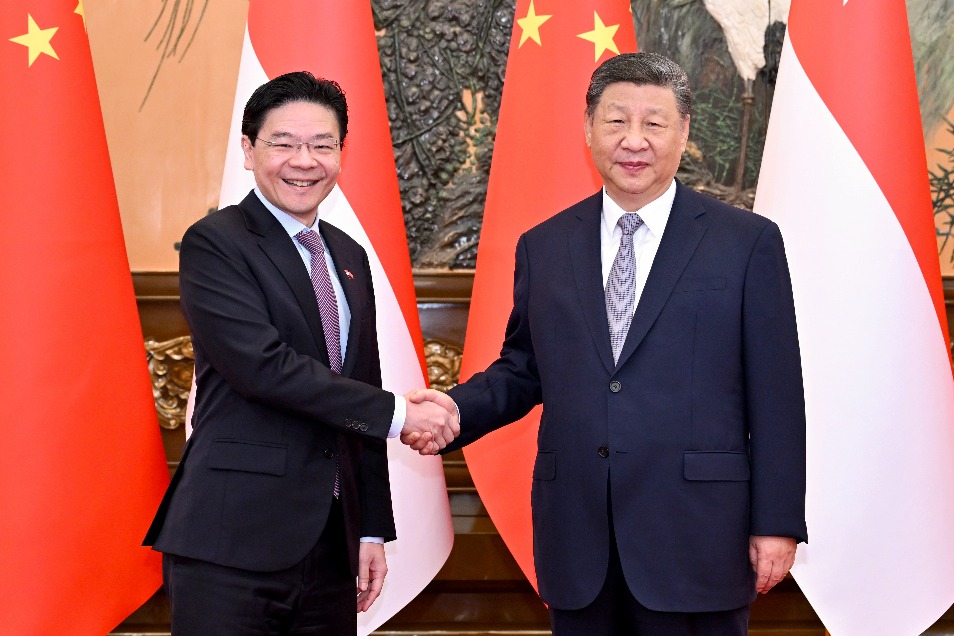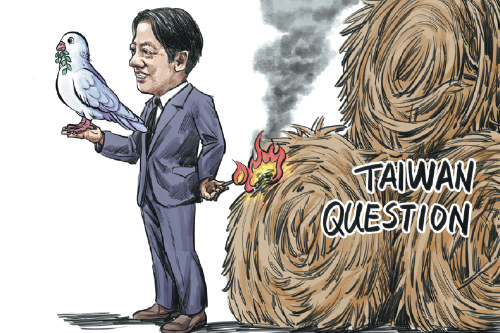Lai's speech will drag Taiwan into severe crisis

Crisis-ridden Washington not Lai's last straw
When Lai Ching-te still dreams of advancing his political agenda by clinging to Washington, the latter is under fire from all sides. From a spiraling immigration crisis marked by Los Angeles riots, Democratic calls for presidential impeachment to Middle East turmoil, transatlantic rifts over Russia-Ukraine conflict, and back-and-forth tariffs, these crises are all giving the United States administration a real headache.
Against this backdrop, Lai's series of statements seeking to bolster the island's position by leveraging US support comes across as tactless and wishful thinking.
Lai's first of his planned ten speeches on "unity" are just the old wine in new bottles, which adopts same tricks of distorting the history and peddling "Taiwan independence" narrative by relying on its foreign patrons. However, in reality, Washington's interest lies primarily in containing Beijing's development, therefore the island is only a pawn offering some economic profits. Given the "art of the deal" approach of the US president and the country's strategic contraction, it is challenging for Washington to engage in direct conflict with Beijing for the sake of Taipei, especially considering the increasing capabilities of the People's Liberation Army.
The US journal Foreign Affairs recently called for making preparations for potential unification across the Taiwan Strait, advocating a strategic decoupling of the island from Washington in both military and economic terms. Some Pentagon officials even stated bluntly that daily life for US people would remain largely unaffected even if they lost the pawn.
The US' current strategic distress is inextricably linked to the decline of its global hegemony. Regarding the Taiwan question, Washington finds itself trapped in a dilemma — unable to bear the costs of direct confrontation with Beijing, yet unwilling to relinquish the "Taiwan card". This contradictory mindset has plunged the Lai authorities into a quagmire of gambling doomed to failure.
Zhang Guoqing is an associate researcher at the Institute of American Studies, Chinese Academy of Social Sciences.
The views don't necessarily represent those of China Daily.
If you have a specific expertise, or would like to share your thought about our stories, then send us your writings at opinion@chinadaily.com.cn, and comment@chinadaily.com.cn.































